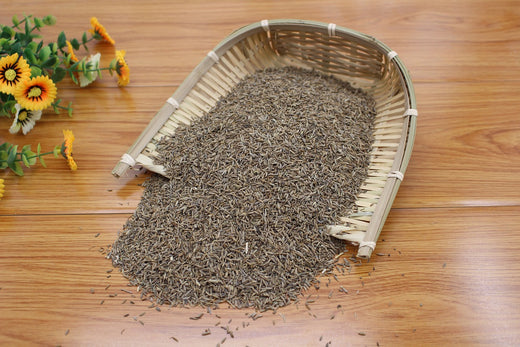As an individual of Indian origin living in the United States, my culinary journey is an exploration of diverse worlds! But if I were to pick one spice that I will never run out of, it would be cumin. This humble spice can create texture, it can enhance taste, and, best of all, cumin can keep your gut healthy.
Exploring Cumin from East to West
Our family kitchen back in India was full of the beautiful aromas of an array of spices my Mom and Grandma would cook with every evening. I had a taste of diversity, but in a different sense—this one was literal. Our spices had a diverse flavor profile: cumin for earthiness, fenugreek seeds for bitterness, dry mango powder for sourness, and fennel for sweetness. There was a dance on the palate that I had taken for granted until I arrived in the US.
I started working and living in Manhattan, NYC, when I first came to the US. For those familiar with Manhattan, you’d know it is such a diverse place! People from across the world have migrated here. Here’s where I got introduced more closely to cuisines from other parts of the world, their play of textures and flavors. I realized cumin was not just India’s prized possession. Besides Indian cuisine, cumin spice is also used in Middle Eastern, Mexican, and African cuisines, adding a bold, earthy flavor to various dishes.
What is Cumin and how to use Cumin
For those not familiar with cumin seeds, the botanical name of cumin is Cuminum cyminum. It has a bitter pungent taste and is very aromatic. Cumin is not a spice you can have straight up, though (unlike fennel seeds); it needs to be cooked.
Cumin can be used in various ways. Some common ways to cook cumin seeds are:
Splutter
Add cumin seeds to hot oil and let them splutter for a few seconds. Then, add veggies/meat to it for cooking or temper your lentils with the hot oil with spluttered cumin.
Toast
Toast the cumin seeds in a pan for 7-10 minutes on medium to low flame until fragrant. Grind the toasted cumin seeds in a spice grinder. This cumin powder is gold! Sprinkle it on your salads, yogurt, feta cheese, chickpeas, lentils, popcorn, and black beans to give them a depth of flavor and increase their digestibility.
What are the benefits of Cumin
Beyond the culinary use of cumin lie its health benefits. According to Ayurveda (a holistic science from India), cumin has many benefits. Cumin has been used for centuries in Ayurveda to support digestion, relieve bloating, and detox given that cumin supports the liver. Cumin is also known for its properties to purify blood and calm spasms.
Cumin for Digestion
To use cumin for digestive benefits and to support conditions of gas and bloating, you could go either of the following ways:
1. Boil
Boil the cumin seeds in water to make cumin tea. This herbal tea made with cumin will taste more like a broth. For extra flavor, add some fennel seeds and coriander seeds to make the Ayurvedic CCF Tea that supports digestion.
2. Soak
Soak a teaspoon of raw cumin seeds in 8 oz of water and let it soak overnight. In the morning, strain out the cumin water and have it first thing in the morning.
Cumin for Immunity
To use cumin for immunity you can use it with honey as follows:
Mix some ground cumin powder with raw honey and have it in the morning to boost immunity. Cumin's antioxidant properties, coupled with honey's antibacterial benefits, create a potent concoction that supports the body's defense mechanisms. This natural immunity booster is a cherished remedy, especially during changing seasons or times of increased susceptibility to illnesses.
Where to find Cumin
Despite all that you can do with cumin and the benefits you can derive from it, it is a budget-friendly spice and is very easily accessible in supermarkets. I’d look for an organic one, though, especially if you are using cumin on a daily basis for its wellness benefits.
Yours flavorfully...
The inclusion of cumin in my American pantry is not just a matter of culinary preference; it's a connection to my cultural roots and a celebration of the diverse tapestry of flavors that define my life. The warm, earthy notes of cumin seeds and cumin tea not only elevate the taste of my dishes but also serve as a reminder that we have wellness sitting in our kitchen pantry. So, the next time you reach for that jar of cumin in your pantry, know that you're not just adding a spice to your dish—you're infusing it with a bit of diversity, a dash of flavor and a whole lot of health.
Use cumin as a more powerful digestive when you make a CCF Tea

